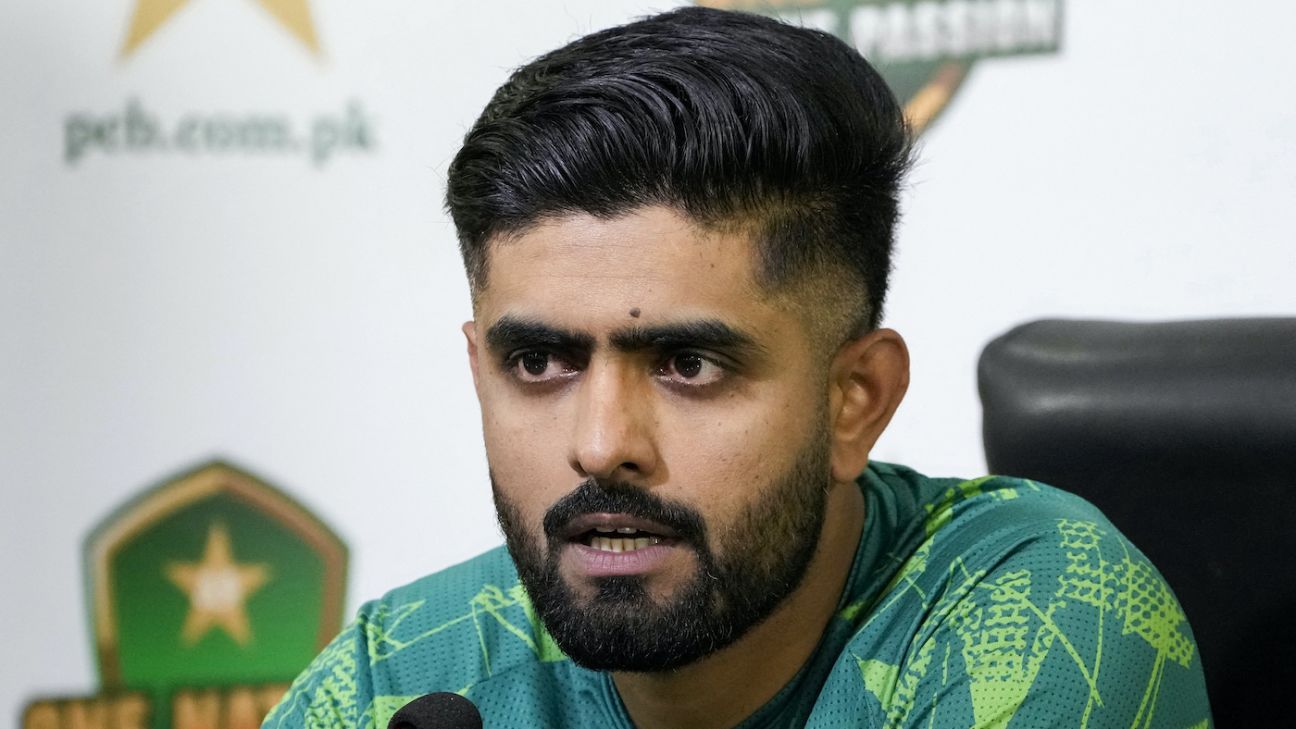Ireland and Pakistan haven’t played a T20I against each other in a decade and a half, but in a sense, acclimatising to each other is no one’s priority. Ireland, despite being at home, haven’t played at Clontarf – the venue for the three T20Is over five days- for the best part of three years, so it’s not just Pakistan who descend on unfamiliar conditions. Both sides have priorities further west in mind, because in about three weeks, they fly out to the US, where they kick off their T20 World Cup campaigns. They’re in the same group, too, and will face each other on June 16 in Lauderhill, Florida, where the conditions or climate are unlikely to replicate Dublin in any serious way.
This, instead, is about fine-tuning last-minute preparations, and making sure both sides head out to that tournament with momentum and form on their side. Pakistan have four further T20Is in England after this series, but these are the last competitive games Ireland play before their World Cup opener against India in New York.
Ireland have been waylaid by the unwanted distraction of a contract dispute between Cricket Ireland and the Irish Cricketers’ Association, with the Irish Times reporting the male players had declined contract offers made to them. The players have been out of contract since March, and played a T20I series against Afghanistan – the only T20I fixtures Ireland have played in 2024 yet – on last year’s contracts. That series was something of a mixed bag, with a comprehensive victory in the first game followed by two defeats. The series’ most noteworthy moment didn’t come in that format at all, but in the solo Test in Abu Dhabi, where Ireland beat Afghanistan to register their first ever Test win.
Ireland’s squad, though, will be familiar to even casual followers of its national side. Just two members of the squad named for the Pakistan series were absent at the last T20 World Cup in 2022, with batter Ross Adair and wicketkeeper Neil Rock the only new inductees. Fast bowler Josh Little is an IPL related absentee, while Paul Stirling, who has played for Islamabad United in the PSL, leads the side.
Pakistan know all too well the complications that can emerge from contract negotiations; they went to last year’s ODI World Cup out of contract, involved in contentious negotiations with their board. At the moment, though, the bulk of their concerns have to do with sorting out their top order and a perceived frailty when setting targets. They play this series off the back of an unimpressive home series against an enfeebled New Zealand side Pakistan were arguably lucky to come away with a draw from, and Ireland may well be encouraged by some of Pakistan’s vulnerabilities that surfaced, should they have the means to exploit them.
While Pakistan have selected their squad with their gaze firmly on the World Cup in the US and West Indies, the attributes required for success in Ireland and England do not necessarily scale. Imad Wasim is unlikely to be as heavily involved as he might be next month, while Mohammad Amir misses the first T20I due to visa issues, and will only link up with the squad on Friday.
But invariably, the focus remained on Pakistan’s clogged potential in the powerplay, and the overs that immediately follow them. Saim Ayub’s struggles in the recent home series meant there was further pressure on Babar Azam to take charge of runscoring, but Pakistan’s powerplay scores read 48, 54, 51, and 48 in that series. Babar has defended that rate of scoring, bemoaning instead the loss of extra wickets in that time, but the belief that Pakistan leave runs out there with both squad selection and approach has begun to take stronger hold.
Interim head coach Azhar Mahmood also talked up Pakistan’s attempts to rectify their scoring rate. “We know who our openers will be,” Mahmood said in what should be encouraging news for Ayub after he was also given Babar’s backing following the New Zealand series. “We understand that we need to play the powerplay well, and then continue to accelerate in the next four overs. We’ve practiced for the Powerplay and the middle overs, and now it’s time for everyone to do their jobs and execute.”
But Pakistan’s tendency to play up, or down to the level of their opponents has often meant it is difficult to glean any lessons from a particular series. In Ireland, with focus already shifting elsewhere, that is likely to be doubly true.
Danyal Rasool is ESPNcricinfo’s Pakistan correspondent. @Danny61000

